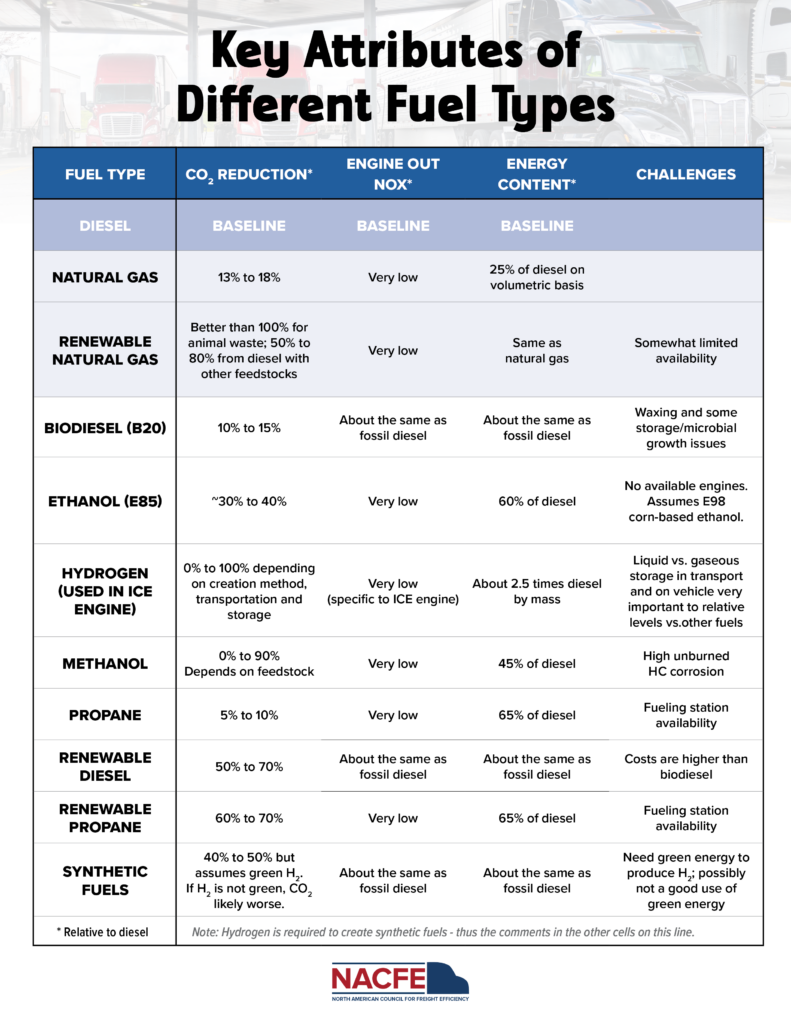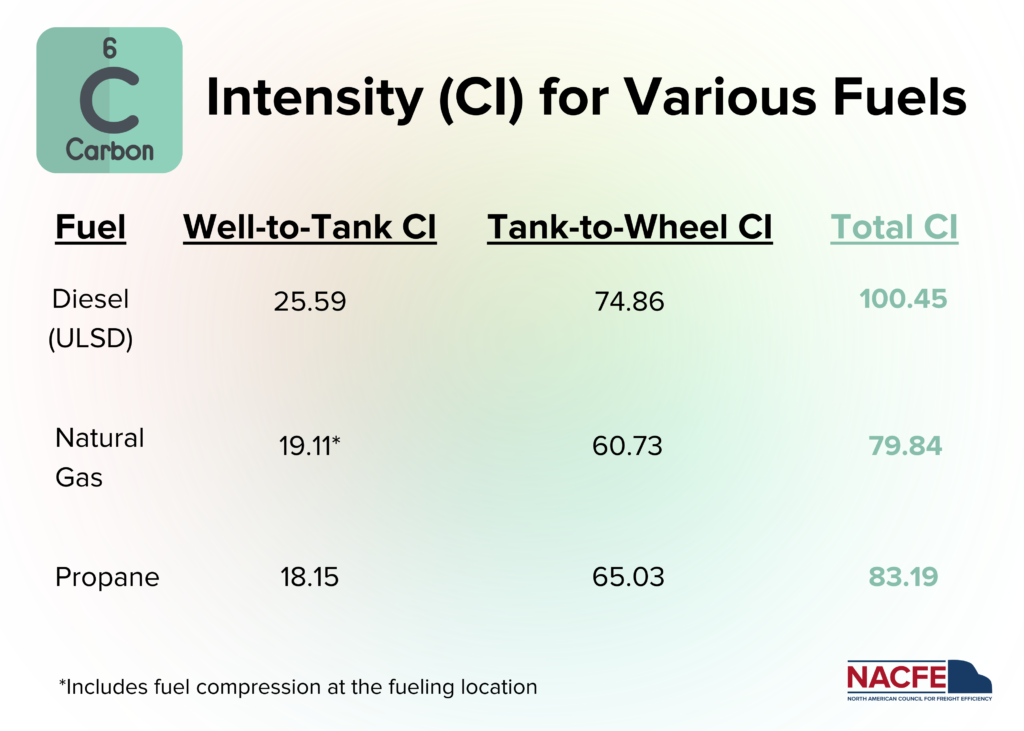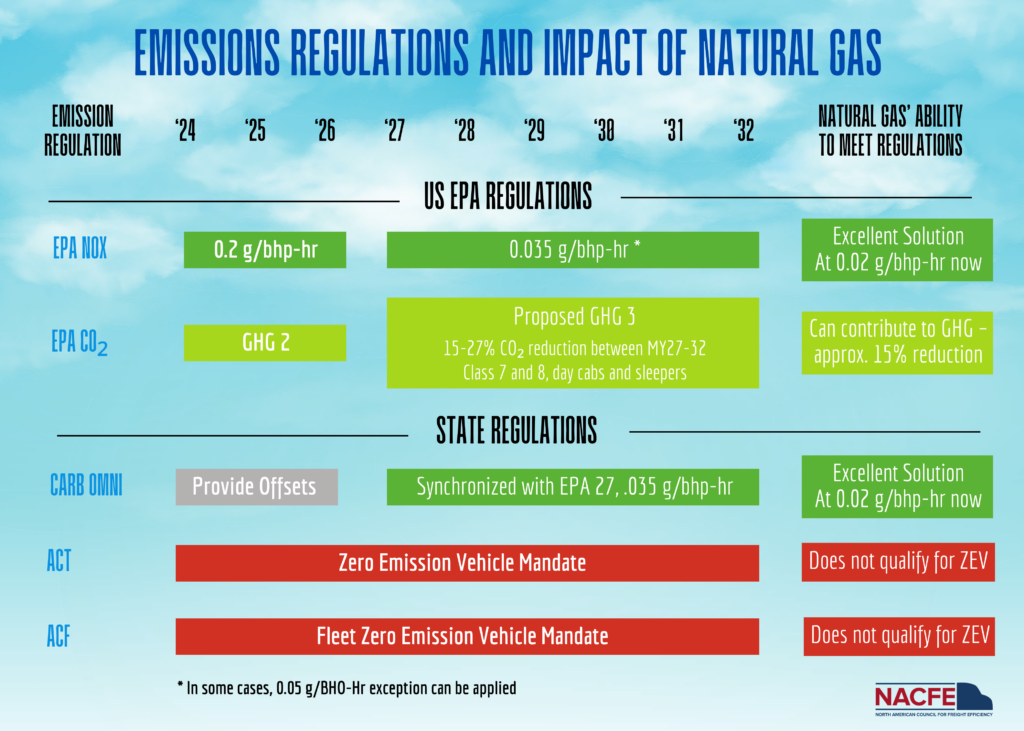Natural Gas And Greenhouse Gas Reduction
Natural gas (NG) is a fuel that has the potential to help reduce total greenhouse gas (GHG) emissions, but also has significant advantages in reducing the more immediate and local health effects caused by air pollutants like nitrogen oxides (NOx) and particulate matter (PM).
The net CO2 benefit of a natural gas engine is in the range of 13% to 18% compared to diesel fuel. Natural gas produces approximately 27% less CO2 per unit of energy on a fuel-comparison basis compared with No. 2 diesel fuel. However, the natural gas engine is less efficient than a diesel.
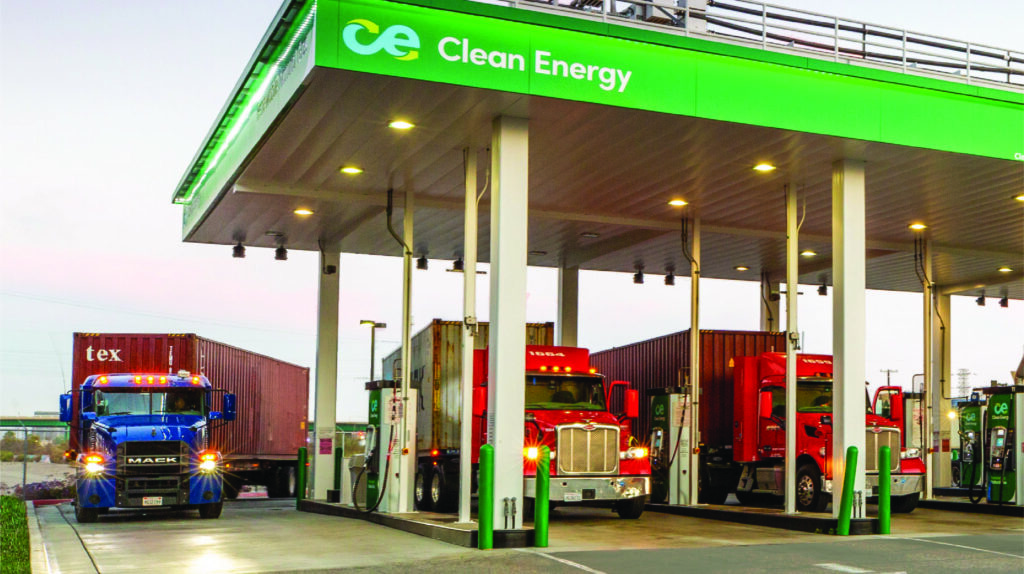
While natural gas has been used in combustion engines for decades, currently there is a renewed interest in using it in transportation because it is a lower-carbon fuel than diesel fuel and is cleaner burning. In the past few years, the capacity to produce RNG has grown significantly and RNG now represents 68% of the natural gas used in transportation in California in 2023.
When evaluating the natural gas option, there are many financial considerations. More specifically, fleets should consider and compare natural gas to diesel and other alternatives including battery electric from a variety of standpoints. It can take five to 10 years for fleets to see payback from their investment in natural gas vehicles and infrastructure. During that time there are likely to be significant improvements in battery electric vehicles which will offer many benefits to fleets. Having invested in natural gas, they may not be able to pivot to take advantage of the many benefits of battery electric vehicles.
As with any technology there are both benefits and challenges for fleets when it comes to natural gas as a power source for their trucks. Perhaps the biggest benefit is that natural gas vehicles can be a near-zero solution. Plus, there is already some fueling infrastructure in place. On the challenge side, is the fact that they are lower in efficiency in miles per diesel equivalent and there may not be incentives to purchase them.
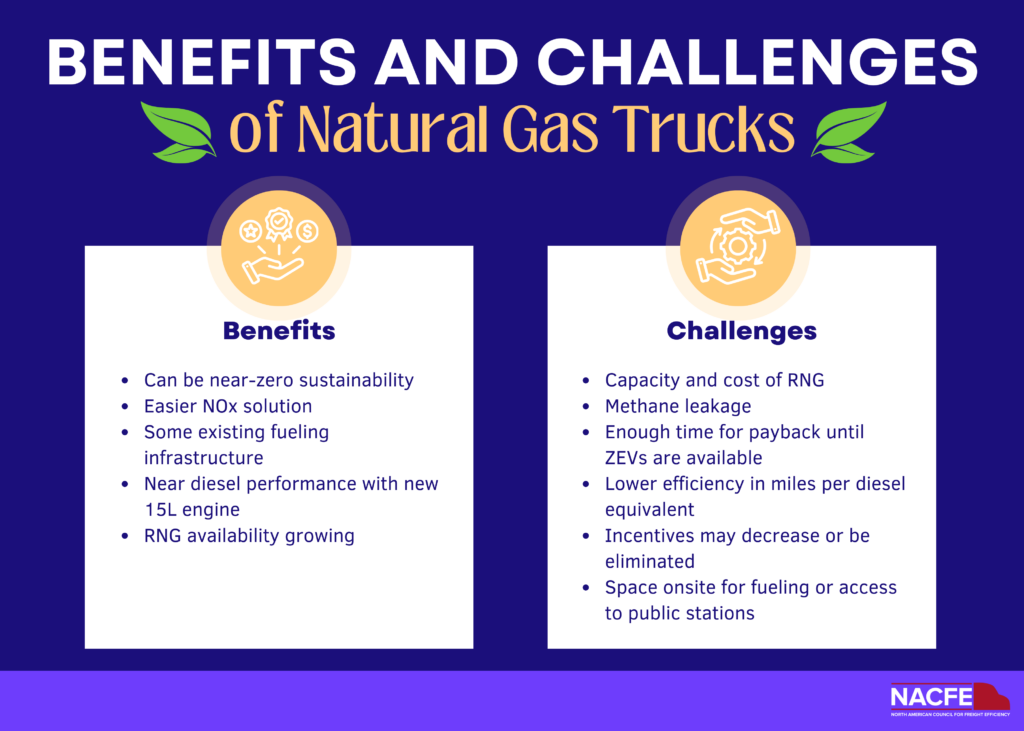
RNG is a form of natural gas that can be used as a fuel to power vehicles. It is fully interchangeable with conventional natural gas and has significant environmental benefits. RNG is generated from various feedstock sources such as livestock (e.g., animal manure), landfills, wastewater, and other sources. Negative carbon intensity (CI) can be achieved through animal waste.
Findings
- There appears to be a wide range in perception and results regarding the business case for natural gas.
- There are several positive environmental aspects of natural gas engines.
- There are environmental concerns with natural gas.
- Sustainability goals, regulations, and the California conundrum are considerations.
- The new 15-liter Cummins X15N engine seems promising.
- Aftertreatment is simple and more reliable.
- Natural gas is very abundant in the US.
- There is a question as to whether there will be an ample supply of RNG.
- Because of economics and the environment, there are a few points to consider when comparing BEV and CNG.
